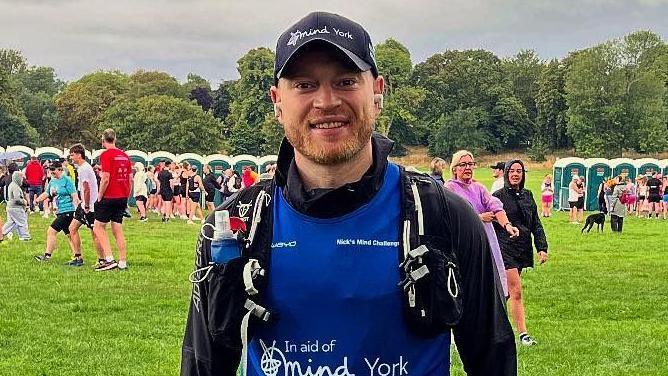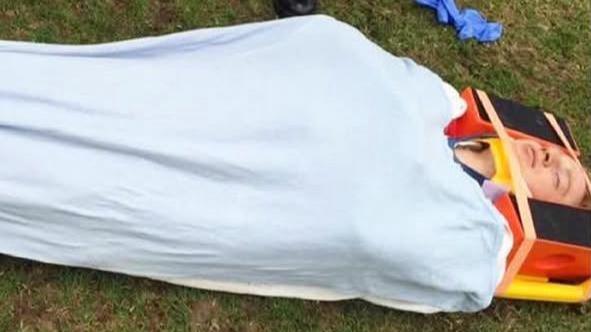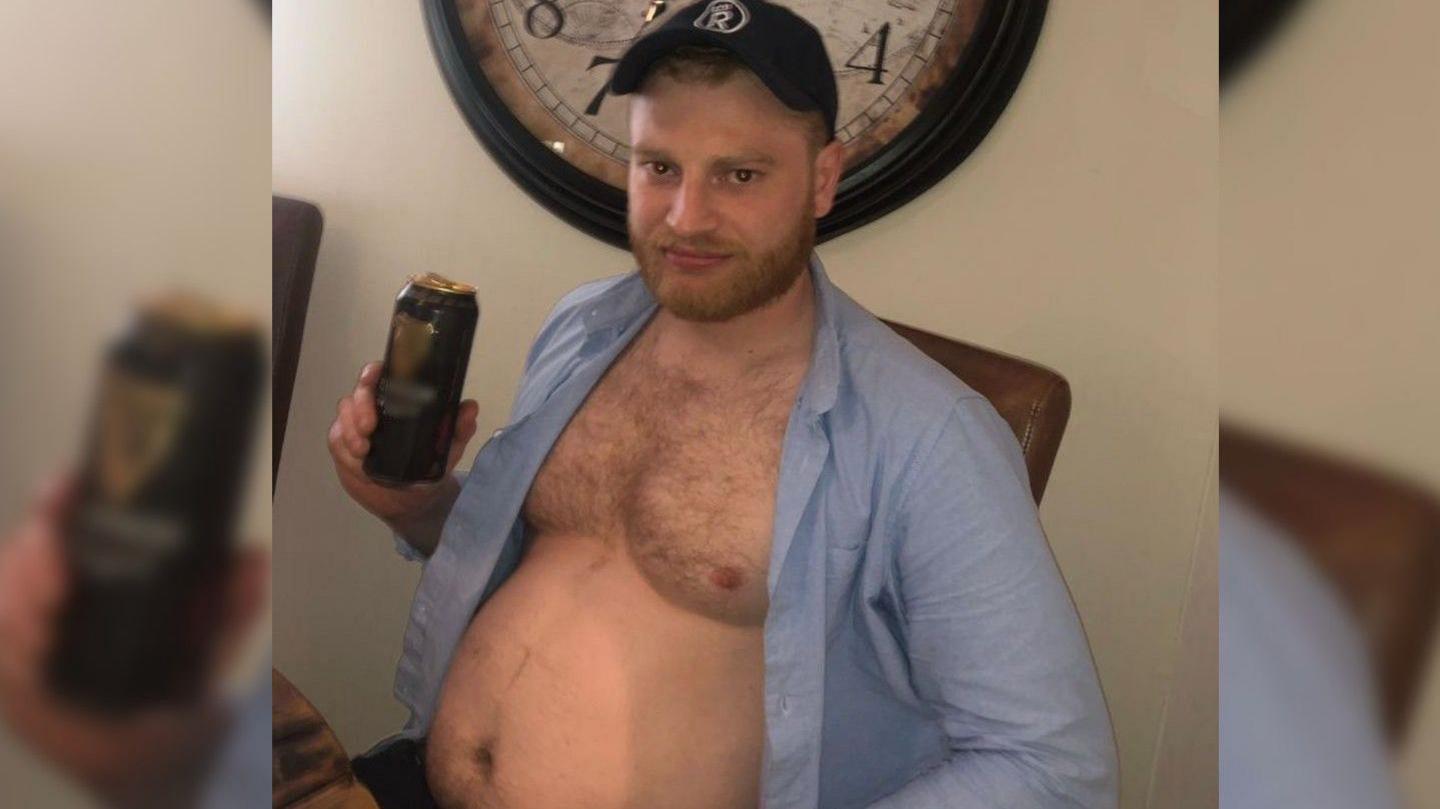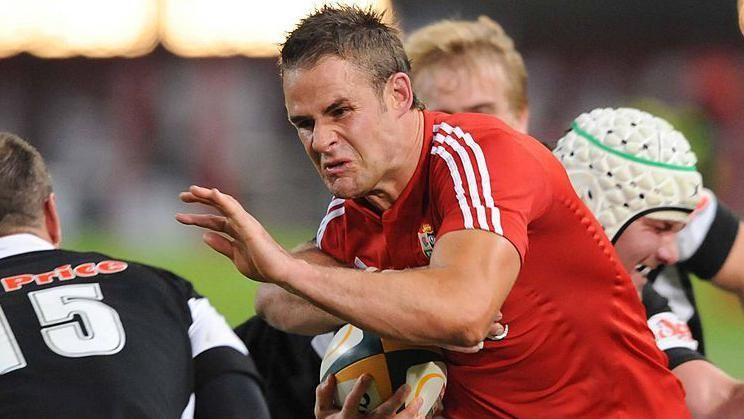'I was knocked unconscious 13 times playing rugby'

Mr Stephen played rugby for nearly 20 years before being forced to stop
- Published
A former rugby player who was forced to give up the sport after suffering repeated concussions has spoken about his struggle with his mental health.
Nick Stephen, 30, started playing rugby in York aged eight, but had to walk away from the game aged 25 after his 13th concussion in three seasons.
He said leaving the sport behind "felt like my whole life had caved in" and he began suffering with migraines, tinnitus, nausea and panic attacks, and was later diagnosed with post-concussion syndrome.
Now he is raising money and awareness for the York Mind charity as well as encouraging others struggling with their mental health to seek help.
Mr Stephen, from York, was playing for Edinburgh Academical when he was given the news he could no longer play contact sports as a result of his repeated head injuries
"The last thing you remember was being happy, playing the sport that you love," he said.
"The next thing you're aware of are bright lights above your head, paramedics are fussing over you, you're strapped to the headboard and you have no idea what's happened."
He said he had "no idea" about the effects of concussion and would rush back to playing "as soon as I could".
However he said his final concussion resulted in him suffering a seizure on the pitch.
"I couldn't remember that whole day, but being shown footage of the injury and how severe the incident really started to take a toll on me."

Mr Stephen said he had no memory of the incident which led to his final concussion
He said being told he could no longer play rugby came as a huge blow and had become "the catalyst for things starting to go wrong".
"You work so hard to get to a certain level of playing the sport that you love, and you're in your prime," he said.
"To have that removed in an instant had a real severe impact on me mentally.
"My migraines started to get so bad I couldn't get out of bed, I had severe tinnitus and nausea every day.
"I had panic attacks and I'd put on weight, and I was getting three to four hours of sleep maximum.
"I still wanted to be the Nick that people knew, but I was no longer that person."
It was at this point that Mr Stephen's parents called for an ambulance and he was taken into hospital for crisis care.
"I was given a diagnosis of post-concussion syndrome, which means that the concussion can last for years. And then it all clicked, it all made sense," he said.
"The doctor said to me, it's like breaking your leg 13 times and expecting it to be the same."
If you have been affected by any of the issues in this story you can seek help and support via the BBC's Action line pages

Mr Stephen said he went into a "gradual decline" after he was told to quit rugby
Nathan Garbutt-Moore from Wakefield-based charity Second Chance Headway, which supports people with brain injuries, said: "We find that concussion can significantly impact on mental health, leading to a number of problems such as anxiety, depression and PTSD.
"It is a life changing event. For some people they'll go on to recover within a matter of weeks or months.
"But for others, they can be left with damage for the rest of their life, so it's important they have the right support in place."
Mr Stephen is now aiming to complete a series of three endurance challenges - a 50km ultramarathon, 24 hours of weightlifting and the national three peaks - all within ten days to raise money for York Mind.
He also said he wants to use his experience to encourage others to seek support for their mental health, especially men.
"Had I sought help a little bit earlier, that intervention could have happened sooner, and things would have never got as bad as they did.
"I had this image as a bit of a rugby lad, and I didn't really understand it.
"If someone told me they were struggling, I'd say 'crack on, you'll be fine', and tell them to run it off.
"But now, I would just encourage young men to come forward, it's the bravest thing you can do."
Listen to highlights from North Yorkshire on BBC Sounds, catch up with the latest episode of Look North.
Get in touch
Tell us which stories we should cover in Yorkshire
Related topics
More stories like this
- Attribution
- Published2 June
